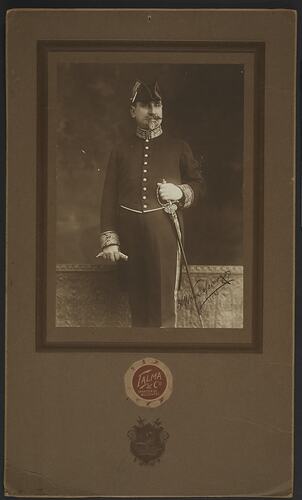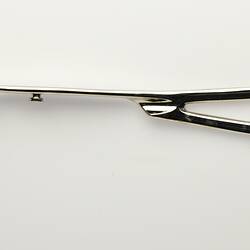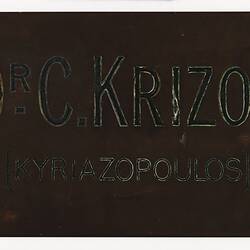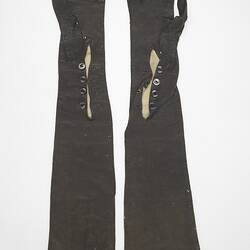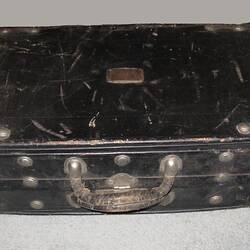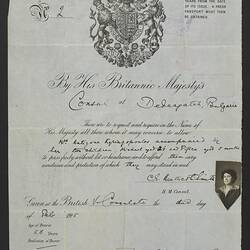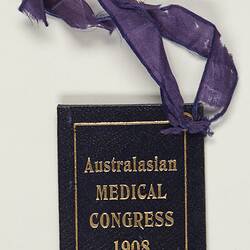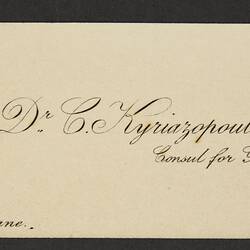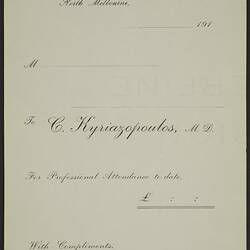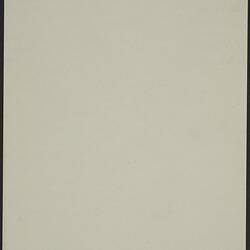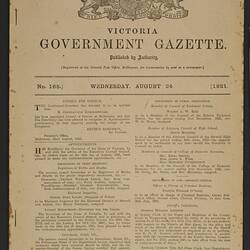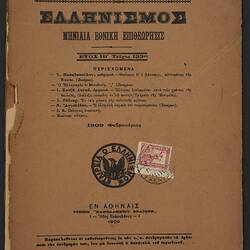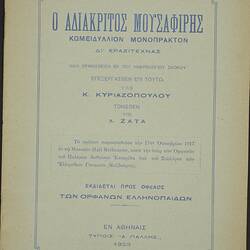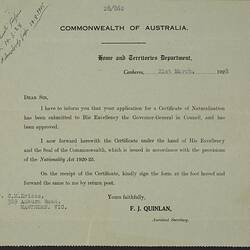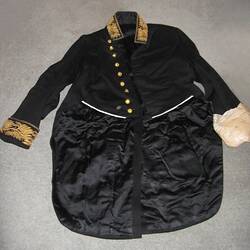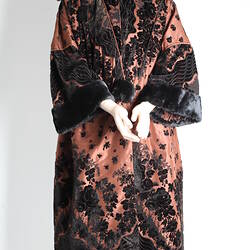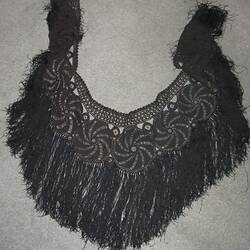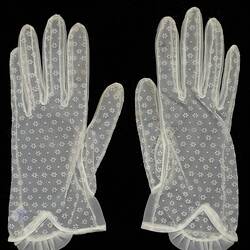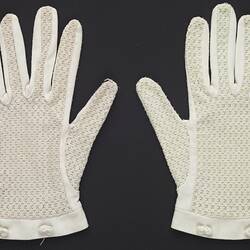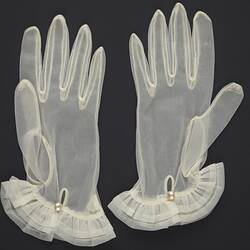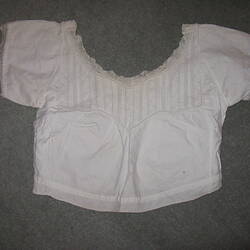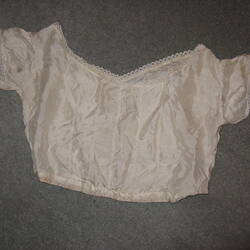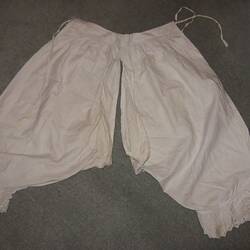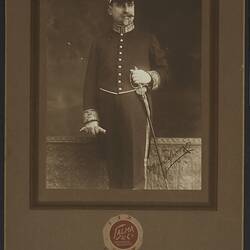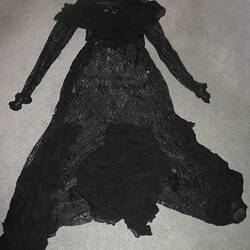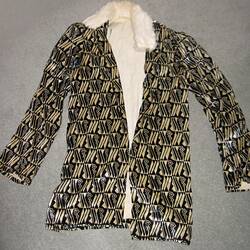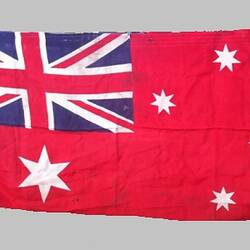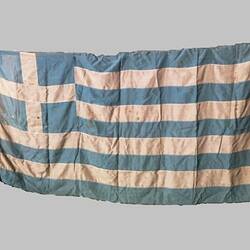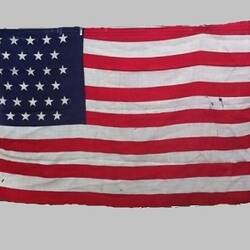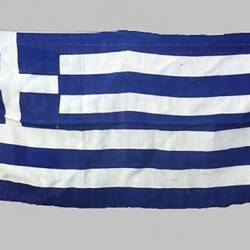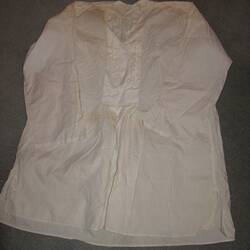Summary
Dr Constantine Kyriazopoulos and Antigoni Dimissa migrated to Melbourne from Greece in 1902 and 1909, Antigoni marrying Constantine in 1909. Contantine practised medicine and they both became active members of the local social and cultural community in Melbourne.
Constantine Kyriazopoulos: Early Years:
Constantine Kyriazopoulos was born in Andrianople (Edirne) in eastern Thrace on the Turkish side of the Greek border in on 26 November (according to deed poll document HT30919). He was descended from an old family of Greek freedom fighters from the 1821 revolution, and the son of a wealthy businessman. From 1884 he completed his secondary education in Athens followed by his doctorate of medicine at the University of Athens which he completed in 1891. After two years in Paris specialising in pathology and obstetrics, he returned to Greece only to then depart for Bulgaria due to a surplus of doctors. There he worked as a travelling government doctor and dispensing chemist - an arduous life mostly on horseback - until rising anti-Greek sentiment forced his return to Adrianople in 1902.
Migration; Professional Challenges:
A Greek seaman who had returned from Australia reported a shortage of doctors there which inspired Constantine to migrate immediately and he arrived in Melbourne in 1902. He was one of the first qualified Greek doctors in Australia but the early years were made difficult due to the Victorian branch of the British Medical Association not recognising his extensive qualifications for 7 years, and his lack of English language skills (although proficient in French, Turkish, Bulgarian and some German). He was employed as a Masonic lodge doctor attending members who received free medical benefits. By 1909 he had established himself in both the Greek and medical communities in Melbourne. His practice (and family home) commenced at 168 Victoria Street North Melbourne; the practice then moved to Collins Street in the city where the business remained until his death in 1939. His patients were from both the Greek and non-Greek communities. Requiring a quieter location, the family moved from Nth Melbourne to their home at 389 Auburn Road Hawthorn in 1924 (where his wife Antigoni remained until her death in 1972 at the age of 93). Constantine was very active during the Spanish Flu epidemic in 1918 attending patients.
Meeting Antigoni Dimissa:
In 1909 Constantine was keen to marry and returned to Greece at the request of his chosen bride's family (whom he knew before leaving Greece), in order to finalise the marriage arrangements with Antigoni Dimissa, a young, well-educated, middle-class woman from a village in the same region as his own family. Her father was also a medical doctor. There was also a condition that Constantine would enable Antigoni's return to Greece to visit family. She had studied in Constantinople, gaining a diploma in teaching French. They immediately returned to Melbourne and married at the Greek Orthodox Church in Victoria Parade. Their first child Michael was born in 1910 in Melbourne and daughter Efthymia (Fifi) born in Andrianople in 1914, during her promised visit home, her father having requested her return to report on conditions in Australia. Her son Michael accompanied her but Constantine remained in Melbourne. She returned to Melbourne on the last ship leaving at the outbreak of World War I.
Cultural Life in Melbourne:
From 1913 when the first Greek newspaper in Australia Afstralia commenced circulation, Constantine became a regularly contributor of articles on historical, social and medical subjects. He published in Life in Australia, Ethniki Salpinx, Phos and To Ethniko Vema under the pseudonym 'Ktilos.' He was an ardent royalist. In 1917, Constantine also wrote a one act social comedy of manners Adiakritos Mousafiris ('The Inconsiderate Guest'), published in 1923 by A. Pallis Publications, considered to be the first play written by a Greek migrant in Australia. Around the same time, in 1916, Antigoni assisted in establishing the Melbourne Greek Women's Society. As president she instigated the staging of Constantine's play in Melbourne, in aid of the Greek War Orphans' Relief Fund. Such activities were crucial to establishing much needed social and cultural networks for the small numbers of Greek migrant women in Victoria.
Constantine's Final Years:
Constantine was very involved in community activities and spoke officially at various Greek celebrations and events. He was an early supporter and contributor to the Church of the Annunciation (Melbourne's first Greek church), involved in selecting the site, financing, architect and designs. He was also a council member and president of the Greek Community of Melbourne, and honorary Consul General (1921-23), amongst other association memberships. The family associated with other well-known Greek families such as the Sigalas and the Nicolades families. In 1926, he decided to 'simplify' his name, changing it by deed poll to Krizos. Constantine caught a chill, developed pneumonia and died on 21 August 1939 and was mourned and commemorated publicly through numerous published obituaries.
Sources: Hugh Gilchrist, Greeks in Australia, Vol. 1 (Halstead, Sydney), George Kanarakis, Greek Voices in Australia (ANU Press, 1987), Interviews with Michael Krizos with Leonard Janiszewski (date?) and Rene Pappas (1985), Leonard Janiszewski and Effy Alexakis, 'In Her Own Image', Modern Greek Studies (2006).
More Information
-
Keywords
-
Authors
-
Article types
